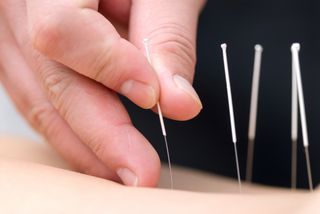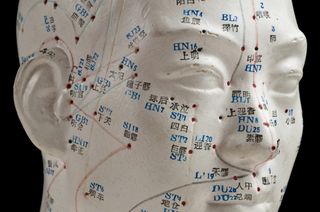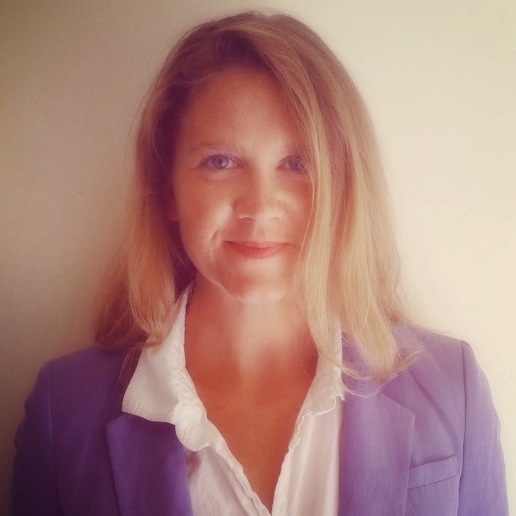What is Acupuncture?

Acupuncture is a complementary medical practice that entails stimulating certain points on the body, most often with a needle penetrating the skin, to alleviate pain or to help treat various health conditions.
Developed millennia ago in China, numerous recent studies conducted by scientists in Europe and the United States have found that acupuncture is at least moderately effective in treating pain and nausea.
For example, one of the largest studies to date on acupuncture and chronic pain — a meta-analysis of 29 well-conducted studies involving nearly 18,000 patients and published in October 2012 in the Archives of Internal Medicine — found that acupuncture is effective for treating chronic pain and therefore is a reasonable referral option. The doctors wrote that "[s]ignificant differences between true and sham acupuncture indicate that acupuncture is more than a placebo" but added that "these differences are relatively modest."
Researchers are also conducting studies to determine if acupuncture is effective at treating depression, anxiety and a variety of cancer and cancer treatment-related symptoms, according to Dr. Ting Bao, an integrative medical oncologist at Memorial Sloan-Kettering Cancer Center in New York.
Most doctors outside of the practice of traditional Chinese medicine are not convinced that acupuncture can treat specific diseases, such as diabetes or liver or kidney diseases, as is prescribed by some practitioners in China, according to Bao, who focuses on the use of acupuncture as a complementary treatment for breast cancer patients.
"Right now acupuncture is really used to alleviate cancer treatment-induced side effects or cancer-induced symptoms, but never to directly treat cancer," Bao told Live Science. "It would be really interesting to see if acupuncture can help prevent cancer. But I don't think the research has reached that level yet."
How acupuncture is said to work
Acupuncture dates back to at least 100 B.C., which is when an organized system of diagnosis and treatment using needles was first described in writing in China. However, the practice likely precedes this written history, according to Dr. Edzard Ernst, a research physician specializing in the study of complementary and alternative medicine.
But the modern practice of acupuncture has changed considerably since it was first introduced in China, according to David W. Ramey and Bernard E. Rollin, who describe the evolution of acupuncture in their book "Complementary and Alternative Veterinary Medicine Considered" (Wiley-Blackwell, 2003). By the 18th century, acupuncture looked much different than the practices described in ancient Chinese texts. And by the early 20th century, aspiring doctors at the Chinese Imperial Medical Academy no longer studied acupuncture, according to the authors.
However, during the so-called Great Leap Forward of the 1950s and the Cultural Revolution of the 1960s, China's communist leader, Mao Zedong, began actively promoting acupuncture and other traditional medical treatments as "pragmatic solutions to providing health care to a vast population that was terribly undersupplied with doctors," the authors write. There is no evidence to suggest that this revival of the ancient practice of acupuncture resulted in improved health for Chinese citizens, according to the authors.
In traditional Chinese medicine, acupuncture is linked to the belief that disease is caused by disruptions to the flow of energy, or qi, in the body. Acupuncture stimulates points on or under the skin called acupuncture points or acupressure points, releasing this qi. The qi then travels through channels called meridians, according to the Center for Spirituality & Healing at the University of Minnesota.
But the acupuncture treatments carried out in hospitals and other health care facilities in the West today are not based on the same principles that were established in ancient Eastern texts, according to Bao. Western scientists have been trying to study the mechanism of acupuncture for years and have come up with several hypotheses, she said.
"One major hypothesis is that acupuncture works through neurohormonal pathways. Basically, you put the needle through specific points in the body and stimulate the nerve. The nerve actually sends signals to the brain, and the brain releases neural hormones such as beta-Endorphins. By doing that, the patient may feel euphoric, or happy, and this increases the pain threshold and they feel less pain," Bao said.
Kylie Study, an acupuncturist and traditional Chinese medicine practitioner at Beaumont Hospital, agrees that current research shows that acupuncture probably excites the biochemical responses in the human body via the nerves. Acupuncture itself doesn't directly release feel-good chemicals that can aid in inflammation, stress, and so forth, according to Study, but it works higher up the chain such as affecting the pituitary gland to produce the extra hormones.
Another hypothesis is that acupuncture works by reducing pro-inflammatory markers, or proteins, in the body. Some animal and human studies suggest that by doing acupuncture, you can significantly decrease these pro-inflammatory markers — including TNF and IL-1β — which decreases inflammation and reduces pain, Bao said. One such spot is just below the knee (known as stomach 36), according to Study. This point is used in a wide variety of treatments that involve inflammation anywhere in the body, as well as for increasing energy and the immune system, which in turn also help to decrease inflammation.
Yet another hypothesis applies specifically to how acupuncture can be used to treat nerve damage, such as chemo-induced peripheral neuropathy, a condition that often causes numbness or weakness in the feet and hands.
"The idea is that by putting the needle in, you stimulate the brain to secrete some nerve growth factor, and then that helps the nerve to regenerate," Bao said.

Acupuncture is also commonly used in conjunction with other fertility treatments. Study said that acupuncture actually increases the effectiveness of many common drugs that are taken to increase fertility by naturally increasing the hormone levels that travel to the ovaries. There has been increased research on women who have polycystic ovary syndrome (PCOS), for example, and who have difficulties getting pregnant due to the syndrome. A summary of several articles between 2006 and 2014 on this topic by HealthCMI found that acupuncture can help balance out hormones, such as lowering testosterone levels and regulating ovulation, all of which lead to as much as a 33 percent increased chance of a successful pregnancy.
A study published in 2017 by Sean Grand, et al., is using acupuncture to help treat people with posttraumatic stress disorder (PTSD). The study found that acupuncture might help with some side effects of PTSD, such as depression, especially when treated soon after diagnosis. The researchers do recommend that even though the research is promising, it is relatively new, and much more research is still needed before promoting acupuncture as one of the treatments for those with PTSD.
A 2017 paper by researchers in Germany and Switzerland studied the effects of acupuncture on patients with allergic asthma. The researchers showed through a large, randomized trial that acupuncture added to the patient's routine did significantly improve asthma symptoms within the three-month trial period. One limitation to the study, however, was that patients and practitioners weren't blinded to the study so there may be an element of bias in the results.
Limitations and misconceptions
Increasingly, mainstream doctors and medical institutions are accepting the practice of acupuncture, particularly for treatment of pain and nausea. A 2013 review, for example, found that acupuncture could reduce vomiting and nausea among patients receiving chemotherapy, according to Cancer Research UK.
Research is ongoing into whether acupuncture can also help with other cancer treatment-related symptoms, including hot flashes, peripheral neuropathy and lymphoedema (swelling of the arm or hand), according to Bao.
The World Health Organization maintains an extensive list of diseases and conditions (mostly pain related) possibly treatable by acupuncture. Many doctors now do not discourage their patients from receiving acupuncture when conventional medicine fails them or when convention treatment entails too many adverse side effects.
There is a growing body of research exploring whether acupuncture also can be used to treat depression, sleep disturbances and drug addiction. In general, however, acupuncture is considered complementary to conventional treatments, and it is likely most effective when implemented along with certain healthy lifestyle habits, according to Bao.
Study also uses acupuncture to aid in anxiety, gastrointestinal issues, weight loss, infertility, and chronic pain, in which she specializes. According to Study, acupuncture has been shown to work very well in conjunction with medications and other treatments to greatly increase their effects.
"Usually, when people are more health conscious, they pay attention to diet, they exercise more, they think about a mind-body approach to decrease stress, and they might also use acupuncture. Ideally, I think these things should all come together, rather than having the goal be to use acupuncture to treat everything. That doesn't necessarily work," Bao said.
Additional reporting by Christopher Wanjek and Rachel Ross, Live Science Contributors
Additional resources
- The National Center for Complementary and Integrative Health's page on acupuncture.
- Memorial Sloan Kettering's comprehensive site on the use of acupuncture as a complementary treatment option.
- The National Cancer Institute's overview on the use of acupuncture in cancer treatment.
Sign up for the Live Science daily newsletter now
Get the world’s most fascinating discoveries delivered straight to your inbox.

Elizabeth is a former Live Science associate editor and current director of audience development at the Chamber of Commerce. She graduated with a bachelor of arts degree from George Washington University. Elizabeth has traveled throughout the Americas, studying political systems and indigenous cultures and teaching English to students of all ages.
